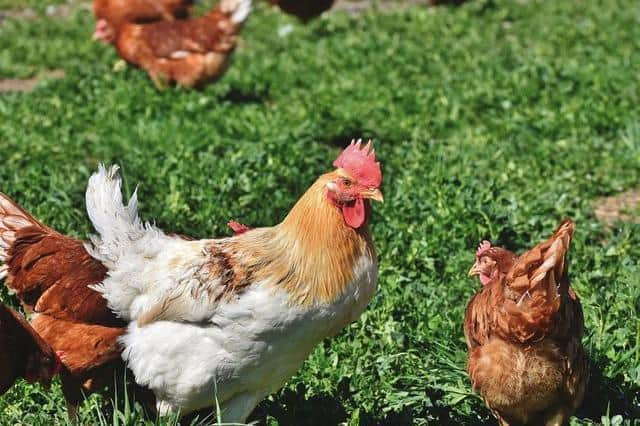Highly pathogenic strain of bird flu found in North Yorkshire as control zones set up


Government scientists said the highly contagious airborne virus was found in poultry at two sites located in North Yorkshire and Lancashire.
Temporary control zones - a 3 km (1.8 miles) protection zone and 10km (6.2 miles) surveillance zones - have been put in place surrounding the premises in Leeming Bar, North Yorks, and near Salwick, Fylde, Lancs. All birds at the sites are set to be humanely culled.
Advertisement
Hide AdAdvertisement
Hide AdIt comes after birds at a site in Essex, where a control zone was put in place, were found to be carrying the highly pathogenic strain HPAI H5N1.
Officials from the Department for Environment, Food and Rural Affairs (DEFRA) first detected the presence of bird flu in the UK back on November 3.
The chief veterinary officer for England, Scotland and Wales released a joint statement to all those who keep poultry, outlining new measures to prevent the spread of the disease.
It said: “Following a number of detections of avian influenza in wild birds across Great Britain we have declared an Avian Influenza Prevention Zone across the whole of Great Britain.
Advertisement
Hide AdAdvertisement
Hide Ad“This means that all bird keepers must take action now to prevent the disease spreading to poultry and other domestic birds.
“Whether you keep just a few birds or thousands, you are now legally required to introduce higher biosecurity standards on your farm or smallholding.
“It is in your interests to do so in order to protect your birds from this highly infectious disease.
The statement added: “The UK health agencies have confirmed that the risk to public health is very low and UK food standards agencies advise that bird flu poses a very low food safety risk for UK consumers.”